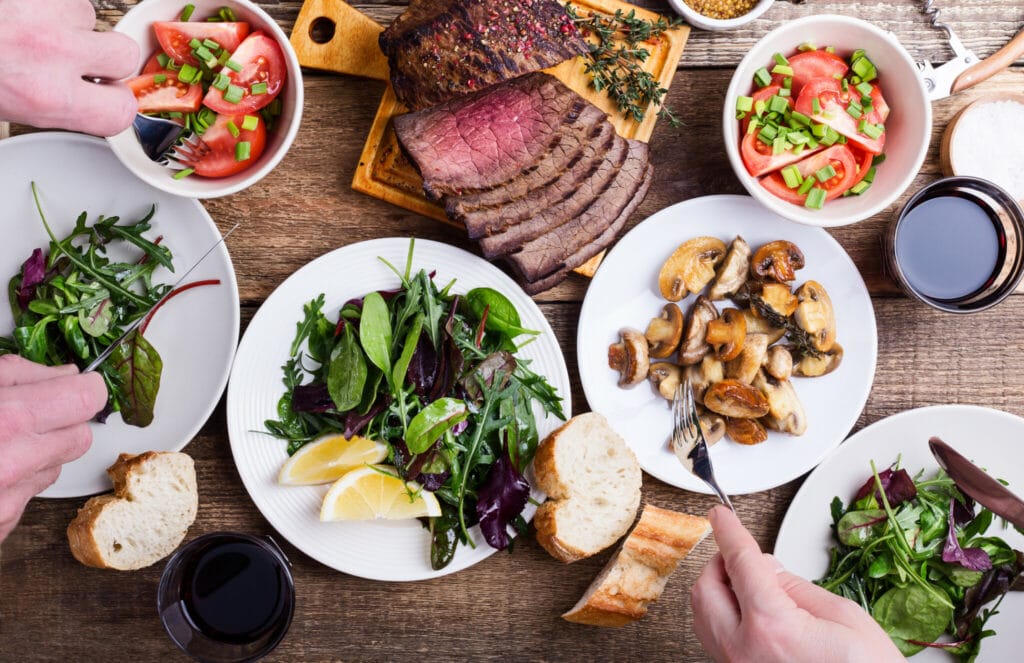By Corina Tan
With the rising popularity of vegan and plant-based diets, people are asking if there really is a need to stop eating red meat altogether. Some feel that eliminating meat completely is unnecessary and that eating a sensible, well-balanced diet is the key to health and longevity. We delve deeper into what really happens to our bodies when we stop eating red meat and found some interesting facts. Whether people intend to stop consuming red meat in an effort to protect animals, the environment or simply to tweak their diet for the better, some changes to the body can be expected.
Red meat is calorie-dense, meaning to say that most meat portions that we eat are very often more than our actual protein requirement. Just an 85gram portion of meat can equal 170 calories, which can be replaced by a portion of beans and tofu to equal the same. So, the first change that can be expected when booting red meat off the menu is losing weight. It may not seem like a big difference initially, but excess calories do add up over time.
Eliminating meat from our diet results in less acidity. Healthy bodies have a good pH balance; however, the modern lifestyle and diet are often influenced by convenience and how readily available and easy it is to obtain food quickly. This gives rise to many acid-forming foods, including meat. High acidity in the body creates a perfect environment for disease, and when stress and poor sleeping habits are added into the mix, it can very easily lower our resistance and ability to fight certain diseases.
Diets that are high in saturated fats are associated with increased inflammation in the body, and chronic inflammation has been linked to the development of cancer. Red meat has been classified as a possible carcinogen by the World Health Organization (WHO), and reports indicate that a high intake of red meat increases the risk of colon cancer. When cooking red meat at high temperatures, the production of several compounds is released that may cause bowel cancer especially in people who have a genetic predisposition. On top of that, processed meat like sausages, hot dogs and burgers contain nitrites, thought to contribute to cancer. If colon or bowel cancer runs in a person’s family history, laying off red meat could be a way of reducing that risk.

Getty Images
Besides this, red meat has also been linked to increasing the risk of cardiovascular disease and obesity. Its consumption produces a compound that appears to correlate with the risk of heart attacks. Saturated fats have also been linked to high cholesterol levels which can lead to a build-up of plaque in the artery walls. This build-up may lead to coronary artery disease, heart attack, stroke, and peripheral arterial disease. As such, trimming out red meat will go a long way toward helping the body reduce cholesterol levels. A link between excessive iron accumulation from too much red meat in the diet may also lead to Alzheimer’s disease.
Other benefits for reducing red meat intake include increased energy, improved skin and less bloating. Since the body digests meat more slowly than it does other foods, abdominal pain, constipation and increased gas are common after a rich meat-heavy meal. By adding healthier options and fibre-rich foods, you could add good bacteria to your gut which lowers inflammation and reduces bloating.

Getty Images
While all the above suggests good reasons to lay off red meat, it is possible to fall short on certain nutrients, so it is important to supplement key family nutrients like vitamin B, iron and magnesium. This can be sourced by replacing red meat with tofu and soy products, fish, cheese and eggs; although a vitamin supplement with high-quality B12, magnesium and vitamin D3 can also ensure sufficient daily doses.
All things considered, it may be a good idea to look into replacing it with healthier options like beans, whole grains, fruits and vegetables. To ensure that you are making diet changes healthily, consult a physician or dietitian for guidance, and equip yourself with good knowledge of nutrition.


